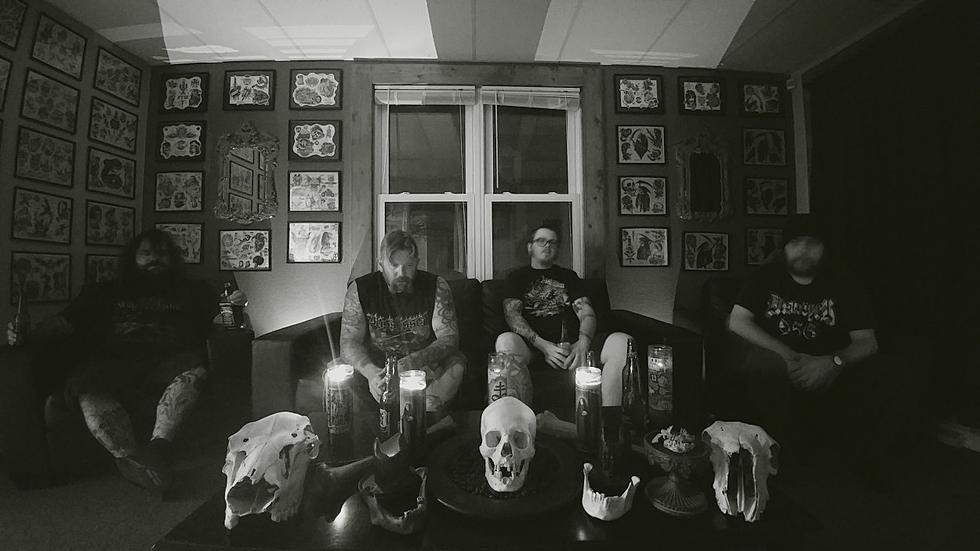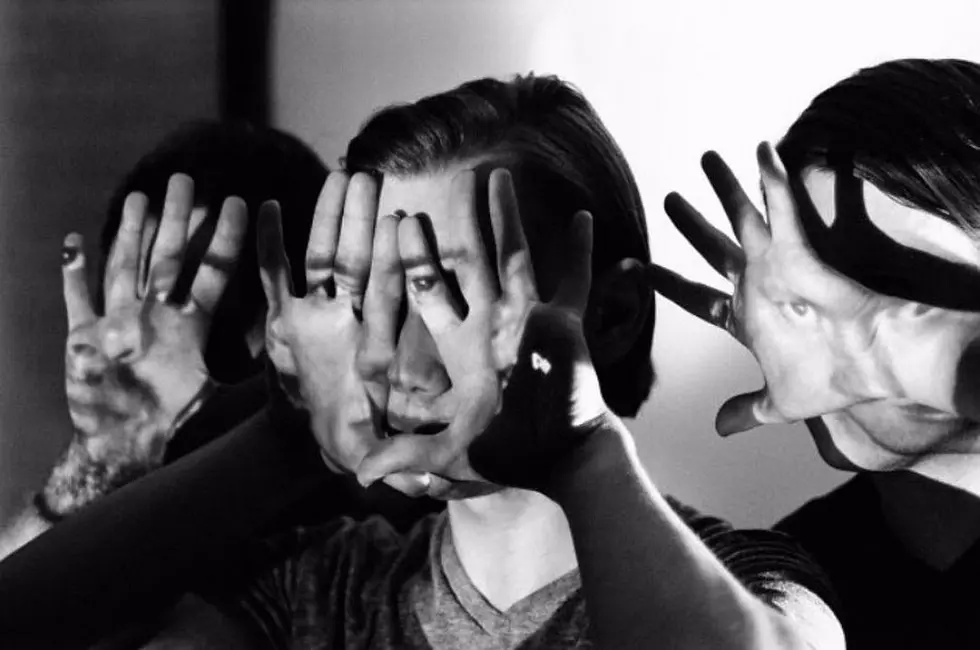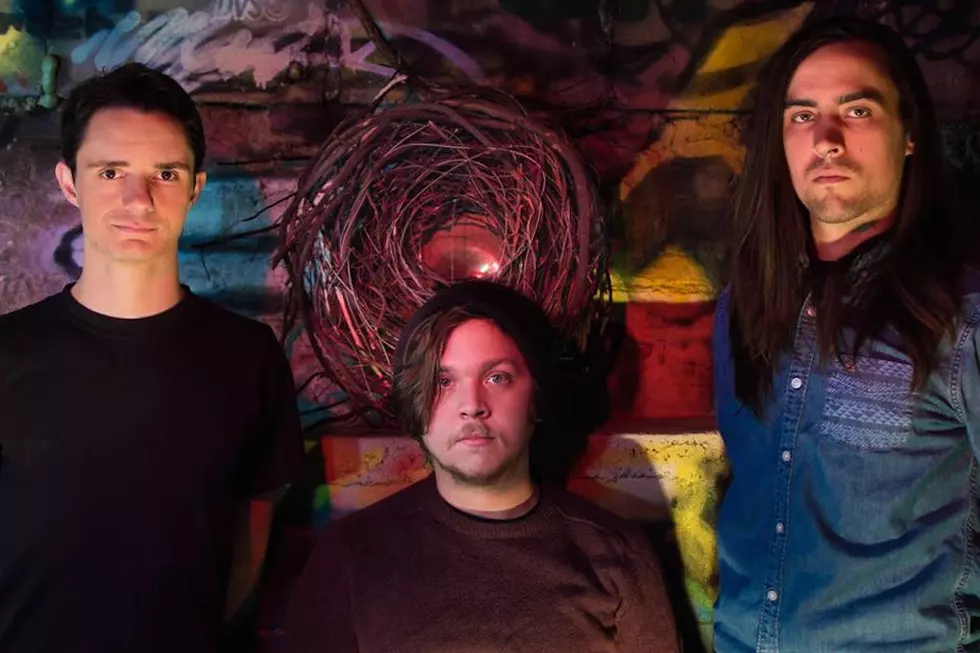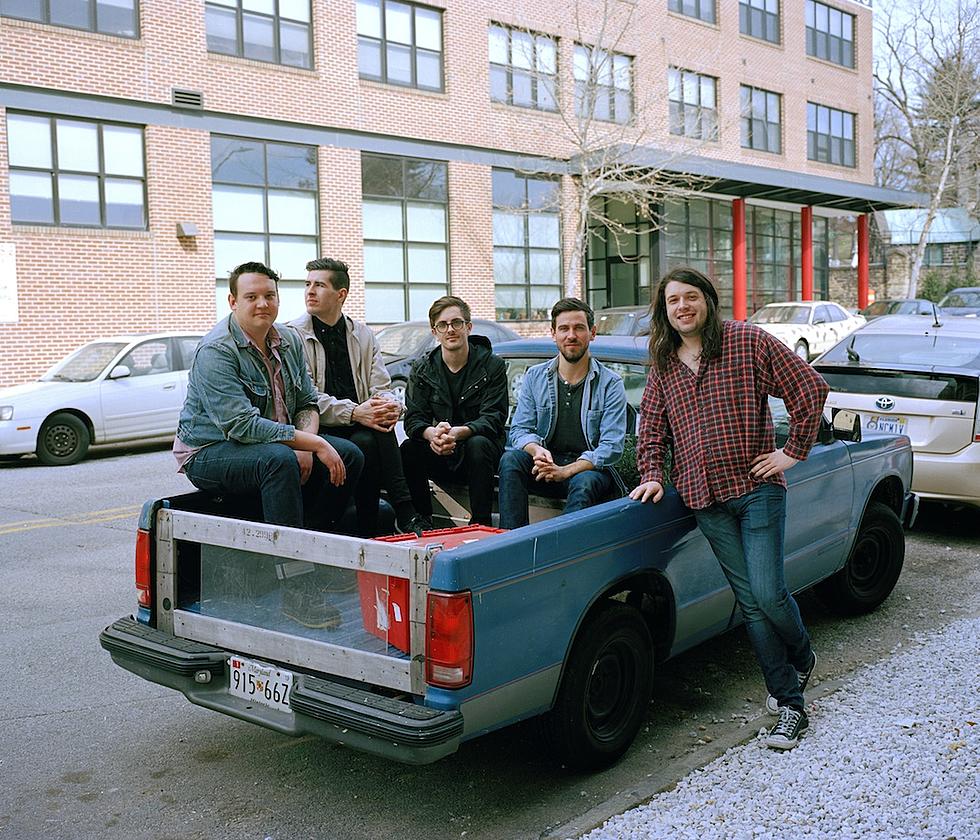
Wolf People Excel at ‘Witch’ Craft, Not Stacking Veggies
Work sucks / we know. We prefer / your show. That's why we ask hard-working bands to recount their worst job experience ever in Trials of Job. Today is by far our most epic installment of the column yet, as ALL FOUR members of U.K. pagan psych-folkers Wolf People recall their crummiest jobs. Enjoy the premiere of their "Night Witch" video, from the forthcoming Ruins, due November 11 on Jagjaguwar, then enjoy anecdotes of (very fleeting) gainful employment from guitarist Joe Hollick, vocalist / guitarist Jack Sharp, drummer Tom Watt and bassist Dan Davies.
How old were you when you started and how long did you last?
Joe Hollick: I was about 19 and I lasted about eight weeks.
Jack Sharp: Nineteen. I lasted almost a year, then got sick of it. Then I realized it was summer and I had no student loan or job and nothing to do. Bit of a stupid decision in hindsight.
Tom Watt: It was a weekend job when I was at University (first year), so about 19 or 20.
Dave Davies: I would've been 22. I worked there for about a year and a half, I think.
What were your primary responsibilities?
JH: Sell model cars.
JS: I think they were ashamed of me because they used to send me in the chiller cabinet every shift. I had to sort the stacks of lettuces and peppers into date order, oldest at the front.
TW: Scanning shit through the till and smiling at customers.
DD: My job was to help manage stock control.
What made it so shitty?
JH: I'm mad into cars, and I'm mad into model cars even more, so on paper, it wasn't that shitty. The worst part was that the boss had questionable opinions that were very hard to stomach, and wouldn't accept anyone else's point of view.
JS: I was lifting crates of vegetables in a fridge for four hours at a time. It was hard work and freezing.
TW: Scanning shit through the till and smiling at customers whilst hungover.
DD: In practice, this meant loading a lot of heavy items, like sofas, into a building that was formerly a hotel and not designed for it. Any items bigger than a two-seater sofa didn't fit in the lift, so we had to carry them up four flights of stairs!
Describe your worst moment at the job.
JH: No real bad moments, just funny moments. A guy used to come in all the time — let's call him "Mad Keith." Mad Keith claimed he had a "radio control carrier bag." He used to run outside with a transmitter handset and run after any bag floating about in the wind, claiming he was at the controls. It was a brilliant piece of street theater. He used to shout at people, telling them, "Watch out! Low-flying carrier bag about!" Keith always used to ask for a tiny pot of Humbrol Olive Drab model paint and a tiny, fine brush to paint his mountain bike. I used to tell him over and over again, "Keith, that brush is too small, the pot of paint also; you'd be better off spraying it, mate. You want to get yourself to Halfords and do it properly — you're wasting your time with that tiny tin." He used to get really mad. Once he ran out of the shop, jumped on his bike and ran straight into a group of people outside the hotel opposite, scattering them like bowling pins.
JS: I was very nearly crushed to death by an eight-foot stack of cabbages when it fell over. Then I got in trouble for destroying loads of stock. I also got scarred for life by a whiteboard. It was the metal bit that holds the pens; it scraped a chunk of skin off my arm. I think I got in trouble for that, too, because I didn’t put it in the accident book.
TW: Scanning shit through the till and smiling at customers whilst incredibly hungover.
DD: One day when I had to handle a delivery on my own, 6AM on a Tuesday morning, there was a large panel van full to load in. It would've probably been okay if there wasn't a tight time limit to get it done by.
What were your co-workers and supervisors like?
JH: See question 5.
JS: Really nice, actually. Loads of people my age who were into music and stuff. I didn’t really get on with the management there, but you don’t when you’re 19, do you?
TW: TBH, pretty cool, really. You get a nice mix of people working at a superstore in London, but not any other musicians that I knew of.
DD: There were some cool people working there. The other stockman was an older guy who was well-read and had a deadpan, snarky kind of humor. This certainly helped take the edge off a lot of the bullshit that comes with working in High Street retail. There was always something funny or philosophical to pass the time with. I think I learned a kind of irreverence and reluctance to take things seriously around those times, which has endured through all the different jobs I've done alongside making music. The worst thing about working there was the endlessly replayed chill-out tapes. Pretty much ruined a few well-known artists of the genre (who shall remain nameless, but I bet you can guess) who I can't stand to listen to ever since. It was like 20 very beige tracks on rotation for months at a time.
Were you playing music at the time? Did your co-workers ever discover your music?
JH: Not really. I was in a band and making stuff at home on an eight-track. I'd moved from another city and had left my old band behind, so I was fairly miserable. None of my co-workers over the years in any job have taken any interest in my music. Usually, talking about it just depresses me, as they think it's either crap or say things like, "You should audition on that X-Factor." There's a lot of people who think bands in the U.K. are either on the TV or play covers in pubs, and there's nothing in between. There's this whole seam of music that gets ignored by many. Bosses, perhaps understandably, don't like letting you go away at short notice to do a few gigs in Norway, for example, and can't understand why you're doing it, or why anyone would want to listen ...
JS: I had a supervisor who was a rapper, so I used to give him cassettes of my beats and go to his gigs and stuff. I was studying music at the time, but I was more into hip-hop, so I was going home and making sample beats all night.
TW: It was when I was really into sampling and making beats, but before I'd had any of them released — and before the days of music being easily accessible online — so, no, they never heard anything; but there were a few people who claimed to be MCs, and the vaguest of plans to collaborate were reluctantly made.
DD: Yes, I think a few people came to see bands I was playing in at places like Fibbers, which was the main music venue in York at that time.
How do you think your skills in the workplace have translated to your music?
JH: Every job I've done just makes me realize how much I want to be at home with my family or playing guitar in this band. It makes you look forward so much to doing music that you're literally more excited than a kid at Christmas the night before any gig. In a way, I'd hate to do music full-time, as I'd worry that tension and release wouldn't be there.
JS: Working in a chiller cabinet gives you a lot of time to think, and sing.
TW: With that job, they certainly didn't. But doing a monotonous thing like that certainly makes the release of getting home and making music something special. I'd just sit there bored all day, dreaming of getting home and booting up the SP-12 and MPC samplers.
DD: Heh, well, it was a good grounding in loading heavy stuff in and out of vans in the midst of heavy traffic — so, highly useful and transferable skills, yes.
Did you get fired or did you quit?
JH: I got fired. I fell asleep on the bus one night before going in. I hadn't been drinking. I don't know what happened, really. It was nice and warm — I just dozed off. I woke up in the bus, in the depot, 15 miles from home at 4AM; I had no money on me. These were the days before mobiles, so I just trudged home, got in at 4AM. I narrowly avoided getting assaulted by some nutter on the way home, and promptly fell asleep and slept through my alarm. Waking up three hours after I was meant to start, I rang in to apologize and get in as quick as I could. It didn't work. Apparently, it was just the perfect reason for the boss to finally fire me; turned out I was too scruffy and I set a bad image for the shop. Ah well.
JS: I quit. On good terms.
TW: I think I just canceled a few too many shifts and realized I probably wasn't welcome back anymore. It was an emotional end.
DD: I quit. Started to get gigs in London and couldn't get back in time to do the Tuesday morning load-in of doom, so it was time to move on! Looking back, it is quite amazing I didn't get fired, actually. My naive willingness to attempt to move any and all ridiculously heavy crates was considerably offset by dropping and breaking a few too many vases, etc.
More From CLRVYNT









